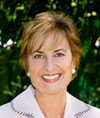Increase Book Exposure Through Author Speaking Engagements
By Sarah Bolme
One surefire way to spread the word about a book is for the author to embark on a public speaking campaign. Authors who pursue speaking engagements gain more attention for their books. Some authors have single-handedly propelled their books to bestseller status through traveling and speaking nationwide on a continual basis.
Even if an author does not have the ability to travel and speak extensively due to other life commitments, don't overlook this important aspect of book marketing. Authors willing to do even a few speaking engagements will develop a loyal reader base and increase their books' sales.
Getting Started
A good place for authors to start speaking on their book's topic is through local bookstores and libraries. Many bookstores (especially Borders and Barnes & Noble) will host short seminars by authors for their patrons. Libraries do this also. Authors who take advantage of these opportunities can sell autographed copies of their books after these events and boost their sales.
Non-fiction authors usually have a built-in topic for speaking. However, fiction and children's book authors can create opportunities for speaking. For example, children's book authors can volunteer to read their children's book at a bookstore or library during National Literacy Month (September). An author of a young adult fiction title can volunteer to lead a short seminar for teens on fiction writing at a local library. Authors of mystery novels can take advantage of Barnes & Nobles' October Mystery Month. These ideas are just a few of the many opportunities that can be created for authors to schedule speaking engagements to promote their books.
While developing a public speaking business takes time, speaking publicly can pay off for those authors who undertake this aspect of their book marketing campaign. Initially, authors generally will need to speak for free and use each speaking engagement to sell books. However, once a speaking business is established, authors can begin to charge for their speaking services.
If an author has no previous speaking experience or is fearful of the idea of speaking in front of a group of people, consider getting some training in public speaking through reading books on speaking or taking classes. One good place to gain know-how and confidence in public speaking is through joining a local Toastmasters club .
Securing Speaking Engagements
Speaking engagements must be cultivated and pursued. Opportunities only drop into the laps of those authors who have built the speaking side of their profession over time. Most new speakers will have to spend time cultivating speaking engagements.
All sorts of events feature authors as speakers. Authors can seek out speaking engagements through identifying specific events and groups geared toward their book's target audience as potential speaking venues. For example, a book on healthy dating habits for teens could lead to speaking engagements at middle- and high-schools as well as community and church youth groups.
When an event or group has been identified as a potential speaking venue, the next step is for the author to contact the group's organizers and present an author bio and speaking topic with synopsis for consideration.
Summary
How many books can you sell through speaking engagements? The number all depends on the event, the speaker, and the audience. Whether the book sales total three or three hundred, remember that each speaking engagement is exposure. And exposure builds on itself to produce future book sales.
Sarah Bolme, is the author of Your Guide to Marketing Books in the Christian Marketplace (http://www.marketingchristianbooks.com) and the director of Christian Small Publishers Association (http://www.christianpublishers.net). �2007
Article Source: http://EzineArticles.com/?expert=Sarah_Bolme
http://EzineArticles.com/?Increase-Book-Exposure-Through-Author-Speaking-Engagements&id=826174










